User:Crylante/Sandbox/Azmara
Progress Party Forþgaanenpartii | |
|---|---|
| Historical leaders | Mikel Hankssun Wiljâm Jorśsun |
| Founded | 1849 |
| Dissolved | 1905 |
| Ideology | Liberalism Radicalism Laicism Republicanism |
| Political position | Left-wing (before 1880's) Centre-left (1880's onwards) |
1848 Revolution; Commonwealth established; liberal Forþgaaners fight conservative Jorśites for power.
-1849-1861: Forþgaaners
Universal education established.
-1861-1867: Jorśites
-1867-1873: Forþgaaners
-1873-1876: Jorśites
-1876-1888: Forþgaaners
Death penalty abolished.
-1888-1895: Jorśites
Jorśites form National Coalition.
-1895-1897: National Coalition
-1897-1900: Forþgaaners
-1900-1906: National Coalition
Rise of the labour movement; Workers' Party forms. Forþgaaners rebrand as Gold Flame.
-1906-1918: Gold Flame
FPTP abolished; emancipation of women in Fifth Amendment.
-1918-1921: National Coalition
-1921-1924: Workers'-dissident Gold Flame
New Liberals form from dissident Gold Flame.
-1924-1933: National Coalition-Gold Flame
New Liberals rename to Radicals, Azmara enters Great War on the side of Gaullica despite mass public opposition, after suspension of 1927 and 1930 elections for war effort a general strike amidst growing threat of occupation brings down the government and Azmara withdraws from the war.
-1933-1954: Workers'-Radical
Key workers' rights established, Azmara re-enters war, welfare state established, National Coalition collapses as moderates from Sotirian Democrats from its ashes.
-1954-1957: Sotirian Democrats-Gold Flame
-1957-1960: Workers'-Radical
-1960-1963: Sotirian Democrats-Gold Flame
-1963-1966: Workers'-Radical
Abortion decriminalised.
-1966-1969: Gold Flame-Sotirian Democrats
-1969-1975: Radical-Sotirian Democrats
-1975-1978: Workers'-Radical
-1978-1987: Gold Flame-Sotirian Democrats
Neoliberalism is in power. A programme of deregulation and privatisation is pursued. Workers' Party support sinks to low levels.
-1987-1993: Gold Flame-Radical
Civil unions for same-sex couples introduced: neoliberalism continues.
-1993-1999: Workers' Party-Radical
The Workers' Party pursues a new centrist outlook: Socialist Party splits in protest, Green Party grows in support.
-1999-2005: Workers' Party-Gold Flame
The Grand Coalition comes to power; same-sex marriage legalised, multiculturalism encouraged, soft drugs decriminalised.
-2005-2008: Sotirian Democrats-Radical-Green
A centrist coalition comes to force against the growing threat of the right-wing People's Party. Status quo is largely maintained.
-2008-2011: Workers' Party-Radical-Sotirian Democrats-Green
A centre-left government is established, but little is achieved due to disagreements between parties.
-2011-2014: Gold Flame-Sotirian Democrats w/ People's support
Controversially, the support of the right-wing People's Party is used to form a government. Restrictions on immigration increased. New single issue parties such as Free Alliance and the Grey Party form.
-2014-2017: Gold Flame-Sotirian Democrats-Radical
The Radical Party agrees to support the government on the condition that the anti-immigration policies passed under the last government are repealed. New Azmara forms before election.
-2017-present: Workers'-Green-Socialist-New Azmara
A new left-wing government comes to power in Azmara in opposition to neoliberalism and Third Way politics. Eryk Bogskuuta becomes Prime Minister.
Tables
Number 1
| Nº | Portrait | Name (Birth–Death) |
Term of office | Former party | |
|---|---|---|---|---|---|

|
Mikel Hankssun (1800-1876) |
19 October 1855 | 19 October 1867 | Progress Party | |
| first president and noted radical folksmot member during the monarchy who does a lot to set up the institutions of Azmara as a liberal democracy and purges a lot of the church's influence from the govt, in his final years in office he starts suffering from dementia and increasingly hands over to his ministers, including his successor | |||||

|
Jorś Wilhjalmssun (1821-1895) |
19 October 1867 | 19 October 1873 | Progress Party (Jorśite) | |
| hankssun's much younger friend in the monarchist folksmot who serves as his foreign affairs minister throughout his presidency, notably turns away from some of hankssun's more radical projects in the sphere of anti-clericalism which causes a rift with some of his party colleagues and splits the progress party until the scary socialists come and they reunite | |||||

|
Herman Hermanssun (1821-1895) |
19 October 1873 | 19 October 1879 | Progress Party (Hermanite) | |
| hermanssun was jors's education minister the first year of their presidency then quits bc they disagree over the church's role in higher education. however now the revolution's done and the monarchists are gone the progress party starts to face issues bc the workers want rights, the nationalists want the islands back and what if sotirian revivalism hit. check back in a few decades these people are going to be big | |||||

|
Frei Mikelssun (1876-1964) |
20 January 1934 | 20 January 1940 | Workers' Party | |
| The former Minister of Finance 1921-1923 and a dissident against the National Coalition government, Mikelssun was elected President in 1934 on the first round with 69.3% of the vote. | |||||

|
Aleksander Siimunsun (1881-1965) |
20 January 1940 | 20 January 1952 | Workers' Party | |
| A former steelworker and trade unionist involved in the 1932 General Strike, Siimunsun was elected the Xth President of Azmara on the first ballot with 65.1% of the vote in 1940. He was re-elected in 1946 with 54.1% of the vote. | |||||

|
Henrik W. Þurleifssun (1887-1975) |
20 January 1952 | 20 January 1964 | The Radicals | |
| A liberal socialist academic and anti-functionalist activist, Þurleifssun was elected the Xth President of Azmara on the first ballot with 55.4% of the vote in 1952. He was re-elected in 1958 with 62.1% of the vote. | |||||

|
Loki Aarnessun (1917-1991) |
20 January 1964 | 20 January 1970 | Gold Flame | |
| A former businessman and Industry Minister 1954-1957, Aarnessun was elected the Xth President of Azmara on the second round with 54.9 of the vote in 1964. | |||||

|
Leif Alekssun (1920-1993) |
20 January 1970 | 18 September 1973 | Sotirian Democrats | |
| The former Finance Minister 1960-1963 and 1966-1969 and Member of the Folksmot 1954-1970, Alekssun was elected the Xth President of Azmara on the second round with 53.2% of the vote in 1970. He resigned in 1973 after refusing to sign a bill legalising contraception. | |||||

|
Aleksander Wiljâmssun (1919-2005) |
18 September 1973 | 17 September 1985 | Workers' Party | |
| A notable author and playwright and a former Member of the Landsmot 1966-1972 representing Cultural Organisations, Wiljâmssun was elected the Xth President of Azmara with 55.3% of the vote in 1973. He was re-elected in 1979 with with 73.4% of the vote. | |||||

|
Jana Eryksdohter (1935-) |
17 September 1985 | 16 September 1997 | Independent | |
| A notable second-wave feminist campaigner and former gymnasium teacher, Eryksdohter was elected the Xth President of Azmara with 53.7% of the vote in 1985, making her the first woman to hold the position. She was re-elected in 1991 with 76.7% of the vote. | |||||

|
Rygin Leifssun (1936-2021) |
16 September 1997 | 16 September 2003 | Workers' Party | |
| The former Minister for Culture 1987-1990 and 1993-1997 and a Church of Azmara priest by training, Leifssun was elected the Xth President of Azmara in the second round with 54.2% of the vote in 1997 and becoming the first President to be born after the Great War. | |||||

|
Liis Helmutsdohter (1951-) |
16 September 2003 | 15 September 2009 | Sotirian Democrats | |
| The former Mayor of Mideltuun 1994-2002, Helmutsdohter was elected the Xth President of Azmara in the second round with 55.6% of the vote in 2003, becoming the second woman to take the office. Her term would be marked by the onset of the 2005 Recession. | |||||

|
Lorenc Aansgaarssun (1946-) |
15 September 2009 | 15 September 2015 | Independent | |
| The former Attorney-General and Minister for Justice 1995-2004, Aansgaarssun was elected the Xth President of Azmara with 62.3% of the vote in 2009. | |||||

|
Maarija Ryginsdohter (1971-) |
15 September 2015 | 21 September 2021 | Independent | |
| The former Mayor of Aalmsted 2010-14, Ryginsdohter was elected the Xth President of Azmara with 71.4% of the vote in 2015, becoming the third woman to take the office. | |||||

|
Harald Alekssun (1967-) |
21 September 2021 | Incumbent | Green Party | |
| A former marine biologist and television presenter, Alekssun was elected the Xth President of Azmara in the second round with 51.9% of the vote in 2021. | |||||
Number 2
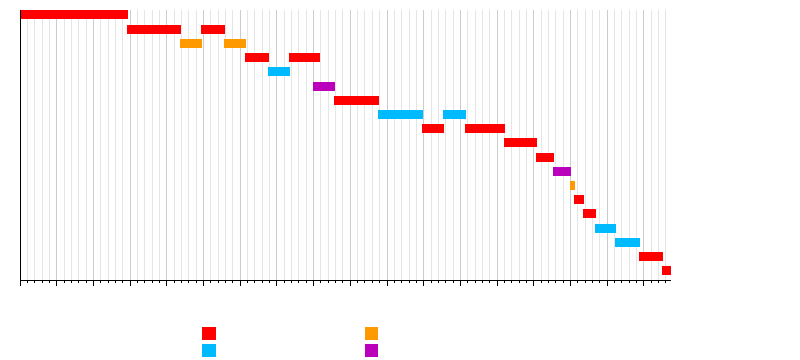
Number 3
Number 4
Centre Party
Centre Party Midelpartii | |
|---|---|
| President | Henrik Jorśsun |
| Founder | Oskar Askerssun |
| Founded | April 22, 1945 |
| Merger of | Farmers' Party Freethinkers' Party |
| Ideology | Agrarianism Sotirian democracy Civic nationalism Green conservatism Pro-Eucleanism |
| Political position | Centre to centre-right |
| International affiliation | Euclean Democrat Union |
| Landsmot | 12 / 75
|
| Folksmot | 26 / 150
|
| Province Presidents | 1 / 8
|
The Centre Party (Azmaran: Midelpartii, Mp) is an agrarian and Sotirian-democratic political party in Azmara.
The party was formed in 1945 through a merger of the Sotirian humanist Freethinkers' Party and the agrarian Farmers' Party with the goal of acting as a united voice in favour of Azmaran rural communities against what its founders perceived as an urban-centric political establishment. It would enter government in 1954 alongside Gold Flame in Azmara's first centre-right government since the Great War and has served in government several times since, supplying three Thingspeakers despite being absent from power 1969-1981 and 1987-2005. It currently serves in the government of Freidrik Aleksaanderssun, with party leader Henrik Jorśsun serving as Deputy Thingspeaker and Internal Affairs Secretary.
Due to its roots in rural communities, the party has been historically most popular within rural areas of the country, especially those with a relatively small presence of organised labour, with the party traditionally gaining its best results in the provinces of Westmaark, Nordberg and Hytklif and traditionally underperforming in urban areas of the country such as the central Bojnersteden region. It is an affiliate to the Euclean Democrat Union on an international level.
History
Organisation
Ideology
Electoral results
Oskar Askerssun
Oskar Askerssun | |
|---|---|
 | |
| President of the Centre Party of Azmara | |
| In office 22 April 1945 – 1 September 1952 | |
| Preceded by | Position established |
| Succeeded by | Freidrik Helmutssun |
| Member of the Folksmot for Westmaark | |
| In office 1 October 1939 – 1 September 1952 | |
| Personal details | |
| Born | 19 June 1891 Groons, Westmaark, Azmara |
| Died | 1 September 1952 (aged 61) Stefansburg, Aalmsted, Azmara |
| Political party | Centre Party (1945-1952) Freethinkers' Party (1925-1945) National Association (before 1925) |
| Spouse | Mariina Isaksdohter (m. 1909) |
| Children | 3 |
| Education | Mideltuun Boys High School |
| Profession | Writer, politician |
Oskar Askerssun (19 June 1891 — 1 September 1952) was an Azmaran writer, political theorist and politician who served as the first leader of the Centre Party, to which he is often considered the ideological father. He also served as a Member of the Folksmot between 1939 and his death in 1952.
Early life and career
Oskar Askerssun was born in 1891 in the northern Westmaark town of Groons. His father, Asker Isakssun, served as the priest of the town's church, while his mother served as a folksskul teacher. Due to his father's ecclesiastical role, Askerssun was able to obtain secondary educationat the then-Church of Azmara-run Mideltuun Boys High School as a boarding student.
After graduating in 1909, Askerssun would marry Mariina Isaksdohter, a student at the corresponding girl's school and acquire a job teaching at a folksskul in Mideltuun. Over the next decade and a half, he would teach at both this school and schools in rural nearby towns including in his native Groons, during which time he would begin writing. Askerssun's early outputs consisting largely of short stories about Azmaran rural life inspired by the country's romantic and realist literature trends, many of which found their way into the Jeśehten fân Groons ("Stories from Groons") collection published in 1917.
Askerssun's writings would lead to him developing an interest in political matters in order to alleviate the conditions of the rural poor and would join the Sotirian-inspired progressive National Association.
Early political activism
Askerssun would help campaign for the party in northern Westmaark in the 1918 and 1921 elections and would venture into political essay writing, resulting in a 1923 collection titled Þahten fân Groons ("Thoughts from Groons") in which Askerssun described effects of the Great Collapse in Azmara and detailed his criticisms both of the laissez-faire policies of Azmaran governments before 1921 and of Nemtsovism and councilism. Despite this, Askerssun was a cautious supporter of the coalition government between the councilist ADAA and the National Association, noting that if the latter "moderated" the former's "Nemtsovite excesses" then "significant progress" could be made on "eradicating rural poverty".
After the rise of the National Coalition to power, Askerssun would find himself cast in the role of a political opposition leader, becoming a key figure in the new Freethinkers' Party formed by the splinter of the centrist wing of the National Association as its socialist wing merged with the majority of the ADAA into the Workers' Party. In response to what he and many other opposition politicians considered a crackdown on civil liberties by the government and alignment with the Functionalist government in Gaullica, Askerssun would attempt to organise a united opposition front to help defeat the National Coalition in the 1927 election yet this would be to no avail and the government would be re-elected amid a red scare.
In the face of Azmaran entry into the Great War on the Gaullican side in 1929 and further crackdowns on civil liberties culminating in the suspension of the 1930 election, Askerssun would temporarily flee the country with his wife and children to Werania fearing for his personal safety. Residing in Westbrücken, Askerssun would publish the essay and short story collection Ân Handeling âb Wiþerstejen ("An Act of Resistance") in 1931, a work harshly critical of National Functionalism and right-wing authoritarianism he would later describe as his "magnum opus".
With the outbreak of the 1932 General Strike in Azmara leading to the downfall of the National Coalition and the country's withdrawal from the war, Askerssun would return, being appointed as Minister for Agriculture in the provisional government of Hjalmer Alekssun as the new government rewrote the constitution and re-entered the war on the anti-Gaullican side. However, Askerssun would not stand in the 1933 election and would resign from office, stating that he needed a "retreat" from political life, declining an offer from his party to stand in the 1934 presidential and 1936 legislative elections.
During the late 1930s Askerssun would publish two more short story compilations which would branch out in themes to explore romance and historical fiction - 1936's De Raad Foogel ("The Red Bird") and 1938's In Hindsiht ("In Hindsight").
Parliamentary career
Askerssun would ultimately accept a request from his party to run in the 1939 legislative election, stating a concern that the Azmaran political scene would become "monopolised" by the Workers' Party-Radical alliance who had won large majorities in the past two elections and who he described as "too rooted in urban concerns" to address a significant swathe of the nation.
Topping the poll in Westmaark province, Askerssun would become one of the leading voices of the opposition to the governments of Hjalmer Alekssun. Askerssun would continually emphasise his opposition to the government as being "respectful and constructive" and would seek bipartisan solutions on areas of mutual agreement such as the introduction of universal secondary education and integration into the United Nations of Euclea, while criticising the government's industrial policy of nationalisation and state planning of significant portions of heavy industry as overly centralising power.
Askerssun was also a noted critic of the government's welfare reforms, noting that while he saw a "more generous pensions and social insurance system" as a "necessity", he saw what he termed the government's "one-size-fits-all" approach as "dangerous", arguing instead for a sectorally stratified system as developed by Sotirian democratic parties in other countries.
After his re-election in the 1942 election, Askerssun would work for greater collaboration of the forces to the right of the government, forming an alliance with the agrarian Farmers' Party citing their similar focus on the interests of rural Azmarans and presssuring the leadership of the Freethinkers' Party to co-operate further with the party. In 1944, a merger proposal heavily supported by Askerssun would be put to both parties, arguing a need to "unite the centre" of Azmaran politics between the socialism and radicalism of the government and the laissez-faire of other opposition party Gold Flame.
This merger proposal would succeed and at an inaugural conference for the new party it would adopt the name of Centre Party of Azmara and elect Askerssun as its first leader, committing to an agrarian platform influenced by Sotirian humanist, liberal democratic and civic nationalist doctrines. The newly-formed party would achieve second place in the 1945 election with 17.3% of the vote and 26 seats, resulting in Askerssun becoming the formal Leader of the Opposition.
Personal views
Askerssun's personal views have been widely judged to have stemmed chiefly from his desire to alleviate the conditions of the Azmaran rural poor, his Westmarckian faith, a romanticist conception of Azmaran nationalism and a commitment to democracy and human rights.
Askerssun was a strong believer in the founding principles of the Commonwealth of Azmara, professing in 1927 that the "republican, secular and liberal democracy" developed by Mikel Hankssun was the most laudable achievement in the nation's history - despite his strong personal faith and religious-derived ethics Askerssun strongly opposed the notion of a state church, describing such a concept as a violation of the Westmarckian concept of "free will".
Askerssun was an opponent both of free-market capitalism professed by Gold Flame and the socialism professed by the ADAA and later the Workers' Party, seeing both systems as "based in the concerns of urban classes", the former serving the burijer class and the latter serving the urban poor to the detriment of other groups in society. Askerssun instead viewed class collaboration as important, stating in Ân Handeling âb Wiþerstejen that "burijers, intellectuals, labourers and farmers" all had a role to play in society and that the government had a role to balance and negotiate the interests of the four classes and ensure none of them were too powerful.
Askerssun supported a large role for small business and co-operatives in the economy and thought the government should intervene to prevent monopolies both by private and state-owned enterprise, seeing both as detrimental to national wellbeing and concentrating power in the hands of too few individuals. Some have described Askerssun as a distributist due to an emphasis on spreading power over the means of production in his writings.
In Þahten fân Groons, Askerssun professed his support for the first wave of Azmaran feminism, stating that he saw "no reason why [his wife] should not be considered legally equal [to himself]", and expressed opposition to the death penalty, describing it as "barbaric". He was also a consistent advocate for temperance and prohibition, with Þahten fân Groons describing the government's duty to "crack down on the vices of the Azmaran poor" such as alcohol, gambling and prostitution.
Some modern-day writers have described Askerssun as a eugenicist due to writings where he argued that children should not be conceived "by families that cannot support them", identifying large families as a "key problem" facing the rural poor, yet others have disputed this.
Legacy
Bibliography
- Jeśehten fân Groons (1917)
- Þahten fân Groons (1923)
- Ân Handeling âb Wiþerstejen (1931)
- De Raad Foogel (1936)
- In Hindsiht (1938)
Althist Azmara
Kingdom of the Azmarans Kyninkryk âb de Azmaariśeren (Azmaran) | |
|---|---|
| Motto: “Friihed onder God en Kyning” "Liberty under God and King" | |
| Anthem: In syyt wyn In sweet joy | |
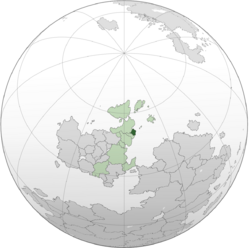 Azmara (dark green) within the Euclean Community (light green) | |
| Capital | Aalmsted |
| Official languages | Azmaran |
| Recognised regional languages | Hytklifer IJssentaal |
| Ethnic groups (2013) | 86% Azmaran 9% Euclean 5% Other |
| Demonym(s) | Azmaran |
| Government | Unitary parliamentary constitutional monarchy |
• Monarch | Frei III |
| Jana Jonsdohter (R) | |
| Legislature | Folksmot |
| Independence from Rudolphine Confederation | |
• Azmaran Revolt | 1665 |
• Consolidation after Ten Years' War | 9 March 1721 |
• Republic of Westmaark | 1786 |
• Kingdom of Azmara | 1801 |
• Glorious Revolution | 1855 |
• Current constitution | 16 November 1974 |
| Area | |
• | 62,845.44 km2 (24,264.76 sq mi) |
• Water (%) | 1.7 |
| Population | |
• 2018 estimate | 10,029,100 |
• 2013 census | 10,011,293 |
• Density | 159.58/km2 (413.3/sq mi) |
| GDP (PPP) | 2021 estimate |
• Total | $473.6 billion |
• Per capita | $47,309 |
| GDP (nominal) | 2021 estimate |
• Total | $513.5 billion |
• Per capita | $51,201 |
| Gini (2017) | low |
| HDI (2017) | very high |
| Currency | Euclo (EUC) |
| Date format | dd/mm/yyyy |
| Driving side | right |
| Calling code | +19 |
| ISO 3166 code | AZ |
| Internet TLD | .az |
Azmara, (/æzmɑːrə/; Azmaran: Azmaara [ɑzmɑːɹɑ]), officially the Kingdom of the Azmarans (Azmaran: Kyninkryk âb de Azmaariśeren [gɛmɛnʋɛlθ æβ ɑzmɑːɹɑ]), is a country located in northeast Euclea with a population of 10 million citizens. The nation consists of eight provinces and has its capital in the city of Aalmsted, whose metropolitan area backs onto many of Azmara's other large cities and comprises around 35% of the nation's population. To the southwest it borders Borland and to the northwest it borders Werania.
The Azmaran state can trace its origins to the consolidation of many of the petty kingdoms in the modern-day territory into the Western March of the Rudolphine Confederation in 1027. This state, which would later be reorganised into Twin Crowns of Groonbank and Westmaark during the 13th century, would come to be one of the pre-eminent states within the Confederation, dominating the Translanian sphere of the Confederation. Despite this, as the Amendist Reaction spread across the Confederation and found a particular stronghold amongst the lesser nobility and burghers of Groonbank-Westmaark, the state would come into specific conflict with successive Protectors over the 16th and 17th centuries, with the state seeing much bloodshed during the Amendist Wars.
Otto IX's attempts at centralisation would lead to further resistance in the state, culminating in the Azmaran Revolt of 1665, culminating in the self-government of several parts of Azmara under the Azmaran Confederation, which would further consolidate its control of the modern-day territories over the next half-century before the eventual unification of Azmara after the Ten Years' War. The Confederation would be increasingly incorporated into Soravia's sphere of influence, with Frederick I ruling the Confederation in personal union with Soravia, and the two states seeing heavy interconnection after his death. This would however be interrupted by attempts to export the Weranian Revolution to Azmara, with the Republic of Westmaark being created as a sister republic in 1794.
After the demise of the revolutionaries, Stefan I would be crowned King of Azmara in 1801, and would try and bring the concept of an enlightened monarchy to Azmara, yet after his death in 1837 his descendants' rule would become unpopular and after a series of bad harvests and confrontations with radical parliamentarians led by Jorś Wilhjâlmssun a revolution would break out in the winter of 1854, which would be ultimately satiated through the 1855 Instrument of Governance, which established parliamentary governance and extended suffrage to significant portions of the middle class. The country would introduce labour market reforms establishing a comprehensive welfare state in the late 19th and early 20th century establishing an advanced mixed economy and would adopt a policy of armed neutrality but would be invaded during the Great War by the Entente before being liberated by the Grand Alliance in 1933.
--- cba to write spiel about marysueism for the althist ---
| Political party | Main ideology | Position | Leader | Seats | Affiliation | Status | |||
|---|---|---|---|---|---|---|---|---|---|
| Folksmot | MEPs | Euclean | EP group | ||||||
| Social Democratic Workers' Party Sośalfolksrâgeliś Arbeiderpartii |
Social democracy | Centre-left | Helmut Mâþijassun | 45 / 150
|
6 / 21
|
ASE | ASE | ||
| The Right De Rehten |
Liberal conservatism | Centre-right | Jana Jonsdohter | 44 / 150
|
7 / 21
|
PCE | ACDE | ||
| Liberal Party De Linksen |
Social liberalism | Centre to centre-left | Frei Jonssun | 18 / 150
|
2 / 21
|
PLE | A | ||
| Popular Left Þyydiś Links |
Democratic socialism Green politics |
Left-wing | Karl Kryssun | 16 / 150
|
2 / 21
|
VEPE | GEM | ||
| Centre Party Midelparti |
Agrarianism | Centre to centre-right | Leif Aarnessun | 12 / 150
|
1 / 21
|
DM-PEC | A | ||
| New Democrats Ny Folksrâgeleren |
Right-wing populism | Right-wing | Hilda Maartensdohter | 11 / 150
|
2 / 21
|
None | None | ||
| Sotirian People's Party Sortiren Folkpartii |
Sotirian democracy | Centre-right | Henrik Jorśsun | 4 / 150
|
1 / 21
|
UDE | ACDE | ||
Alsbora
Alsbora | |
|---|---|
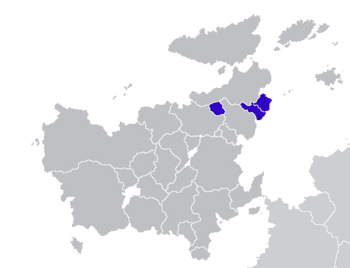 The member states of Alsbora | |
| Membership | |
| Area | |
• Total | 177,937 km2 (68,702 sq mi) |
| Population | |
• 2020 estimate | 28,917,738 |
• Density | 162.52/km2 (420.9/sq mi) |
| GDP (PPP) | 2019 estimate |
• Total | $1.326 trillion |
• Per capita | $45,859.85 |
| Currency | Euclo (€) (EUC) |
Alsbora is a nickname often used for the co-operation and joint advocacy between three northern member states of the Euclean Community: Alsland, Azmara and Borland. The name of the organisation comes from a portmanteau of the names of the three countries - Alsland, Borland, Azmara, and became widely used in Euclean politics since the accession of Alsland to the Euclean Community in 1955, yet the frequent co-operation between the three governments has never been coalesced into a formal organisation.
The term is often associated with joint foreign policy objectives of the three nations, with the three supporting increased federalisation of the Euclean Community while opposing a perceived domination of the organisation by Estmere, Gaullica and Werania and seeking to serve as a counterweight to the spheres of influence of the three countries. In some contexts, the pursual of these goals has led to co-operation between the three countries, Caldia and Hennehouwe, with many publications referring to a "small state bloc" consisting of the five nations, yet the use of Alsbora as a political moniker has remained in modern discourse and is often extended to contexts such as the military policy of the ECDTO, where the three members are often considered more dovish and sceptical of military intervention.
Historical background
- Post-Great War, Azmaran Realignment and Borish independence, Azmara and Borland begin close co-operation on many issues and "special relationship" formed.
- Both nations are founding members of the United Nations of Euclea and the Euclean Community.
- Alsbora probably forms as a thing when Alsland joins the EC in 1955 and I assume co-operation starts to be pursued.
- More stuff
- Workers' Party - Centrum - Progressive Alliance develop friendly relations despite Centrum's DM-PEC affiliation and the others SAE affiliation - in modern day good relations between Anasdohter, Hoven and Moeller notable.
Economies
Alsland
Azmara
Borland
Demographics
Relations with neighbours
Country comparison
| United Provinces of Alsland | Commonwealth of Azmara | Republic of Borland | |
|---|---|---|---|
| Flag | 
|

|

|
| Coat of arms | 
|

|

|
| Official local name | Feriene Provinsjes Aalslân Vereinigte Provinzen von Aalsland Gadorsċiras af Ẹlsland |
Gemenwelþ âb Azmaara | Republick op Borland Republik Borland |
| Common name | Alsland | Azmara | Borland |
| Population | 11,501,738 | 10,291,000 | 7,125,000 |
| Area | 46,789km2 | 62,845km2 | 68,302km2 |
| Population density | 245.8/km2 | 163.8/km2 | 104.3/km2 |
| Capital city | Yndyk | Aalmsted | Newstead |
| Largest cities | Yndyk Wottested Werdau Kirchester Hurdegaryp |
Aalmsted Jorś-Hylager Stajnensby Saltsdyyk Ryksby |
Newstead Westhaven Olham Outhall Stunhill |
| Form of government | Federal semi-presidential directorial republic | Unitary parliamentary republic | Unitary parliamentary republic |
| Current heads of state and government | Hepke Veltman (Head of the Presidency) Ottila Möller (Premier) |
Harald Alekssun (President) Sofija Anasdohter (Thingspeaker) |
Yoghen Heithmann (President) Anita Hoven (Premier) |
| Official languages | Dellish Swathish Weranian |
Azmaran | Borish Estmerish Weranian |
| Main religions | 48% Irreligion 46% Sotirianity 6% Other |
68% Amendism 24% Irreligion 3% Catholic 5% Other |
please add |
| GDP (nominal) | $539.3 billion | $513.5 billion | $295.7 billion |
| GDP (nominal) per capita | $47,374 | $51,201 | $41,500 |
| GDP (PPP) | $564.5 billion | $473.6 billion | $288.1 billion |
| GDP (PPP) per capita | $49,583 | $47,309 | $40,430 |
| Currency | Euclo | Euclo | Euclo |
Mikel Hankssun
Mikel Hankssun | |
|---|---|
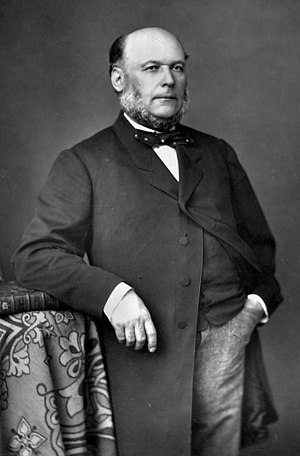 | |
| President of Azmara | |
| In office 27 November 1855 – 25 November 1867 | |
| Preceded by | Office established |
| Succeeded by | Jorś Wilhjâlmssun |
| Personal details | |
| Born | March 18, 1800 Sloh, County of Hytklif, Azmaran Confederation |
| Died | January 10, 1876 (aged 75) Aalmsted, Azmara |
| Cause of death | Dementia (disputed) |
| Resting place | Stefansburg Cathedral, Aalmsted, Azmara |
| Political party | Progressive |
| Spouse | Eleina Hjalmarsdohter (m. 1826) |
| Children | 2 |
| Alma mater | Sloh College |
Mikel Hankssun (18th March 1800 - 10th January 1876) was an Azmaran political leader, lawyer and statesman who served as the first President of Azmara between 1855 and 1867. A leading figure in the Revolution of 1855, he is viewed as one of the founders of republican Azmara alongside his political rival Jorś Wilhjâlmssun.
Ideologically an Azmaran nationalist and radical liberal, Hankssun sought to create a secular Azmaran nation unified by a shared cultural and linguistic heritage and ruled by a republican government inspired by the Seyresian principle of separation of powers and the principle of universal rights of man.
Some people
Harald Alekssun | |
|---|---|
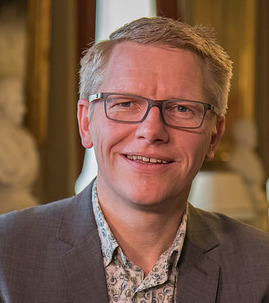 Alekssun in 2017 | |
| Born | March 21, 1967 |
| Nationality | Azmaran |
| Alma mater | University of Westmaark |
| Occupation | |
| Years active | 1994 - present |
| Known for | De Werald |
| Political party | Green |
| Spouse(s) | Ana Jorśdohter (m. 1993) |
| Children | 2 |
Alan Freissun | |
|---|---|
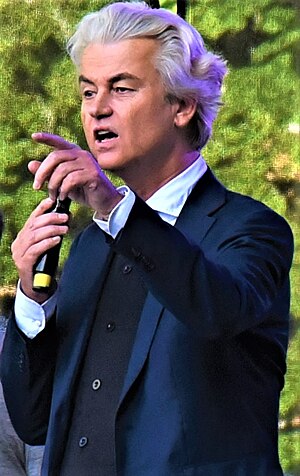 Freissun at Faarsejenawaarden 2019 | |
| Born | July 2, 1962 Saltsdyyk, Sompland, Azmara |
| Nationality | Azmaran |
| Alma mater | University of Aalmsted |
| Occupation |
|
| Years active | 1984 - present |
| Political party | Independent |
| Spouse(s) | Jorśena Alansdohter (m. 1995; div. 2011) Maarijana Leifsdohter (m. 2012) |
Kaþeriina Eryksdohter | |
|---|---|
 Eryksdohter in 2018 | |
| Born | January 2, 1965 |
| Nationality | Azmaran |
| Spouse(s) | Alaana Peitursdohter (m. 2005) |
| Institution | University of Aalmsted |
| Field | Macroeconomics |
| School or tradition | Aalmsted school |
| Alma mater | University of Aalmsted (BA 1987) Sloh College (PhD 1994) |


